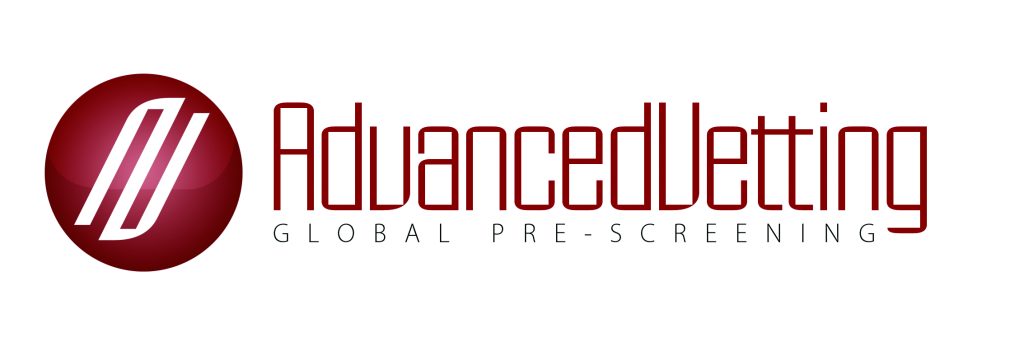| Vetting is a crucial part of hiring as it can help businesses make informed decisions and maintain security. However, vetting myths often create confusion about what the process involves, who needs it, and how it works. These misconceptions can lead to various complications. For example, compliance issues, security risks, and poor hiring choices.
That’s why companies must understand the truth behind vetting. It ensures they stay compliant, protect their workforce, and hire with confidence. We break down common vetting myths to provide insights for HR professionals and hiring managers across the UK.
What Exactly Is Security Vetting?Security vetting is a background check to see if someone is suitable for a job. This is especially relevant for roles that involve sensitive information or require trust. It can include checking criminal records, work history, finances, and character references. For jobs linked to national security, the checks are stricter. Clearance levels include counter-terrorist check (CTC), security Check (SC), and developed vetting (DV).
What Are the Most Common Myths About Vetting?We list and discuss the most common vetting myths, setting the record straight: Vetting Is Necessary for Government or National Security Positions OnlyThe first prevalent myth is that vetting is exclusively for those working with top-secret information or in government roles. In reality, pre-employment vetting is valuable across numerous sectors. Businesses that deal with personal data, finances, or vulnerable people benefit from thorough vetting. The level of vetting should match the risks of each job. It shouldn’t be limited to certain industries. A Single Criminal Conviction Automatically Disqualifies an ApplicantMany believe that any criminal history will result in automatic rejection. However, vetting officers assess each case individually. They consider factors like:
Minor cautions from many years ago may have little bearing on an applicant’s current suitability. But recent, relevant convictions might present a significant risk. This nuanced approach keeps the process fair while ensuring security. Vetting Is Simply a Box-Ticking ExerciseSome think vetting is just a formality, but it’s much more than that. A proper vetting process equates to a detailed and meaningful assessment of each applicant. A Thorough Background CheckVetting looks at more than just basic details. It examines potential risks, such as financial troubles that could lead to blackmail, ties to criminal groups, or other factors that may affect reliability. Protecting Security and TrustBy identifying vulnerabilities early, vetting helps businesses prevent security breaches and ensure they hire trustworthy individuals. It’s not just about compliance. It’s about safety and peace of mind. Vetting Always Uncovers Everything About an ApplicantNo vetting system, regardless of how comprehensive, can guarantee complete disclosure of all personal information. That’s because its success depends on how honest the applicant is. While checks like databases, fingerprints, and references help, there are limits. This underscores the importance of openness and honesty during vetting. Security Clearance LastsMany mistakenly believe that once granted, security clearance lasts indefinitely. In reality, clearances must be renewed at regular intervals. Typically, this is every 5-10 years, depending on the level. Additionally, significant life changes can trigger an early review. For example, if someone with clearance suddenly faces heavy debt, they might be reassessed to ensure they’re not at risk of blackmail. Regular reviews keep security up to date. They help organisations spot new risks and make sure trusted individuals remain reliable over time. Vetting Processes Are the Same WorldwideThis is far from true. Vetting standards vary widely from country to country. Different laws, cultures, and security priorities affect how vetting is done. So, vetting across borders can be tricky for global businesses. It’s important to recognise these differences to keep security consistent while respecting local regulations. This helps ensure safe, effective vetting worldwide. Vetting Invades Privacy UnnecessarilySome see vetting as too intrusive, especially at higher levels like Developed Vetting (DV). This isn’t surprising as DV can include checks on health, drug and alcohol use, and finances. However, these checks focus on finding risks relevant to the role. The depth of the investigation matches the level of access required. This balances security with respecting privacy. Additionally, all vetting processes must comply with relevant laws. For example, the UK’s Data Protection Act 2018 and the EU’s General Data Protection Regulation (GDPR). This ensures personal information is handled responsibly and legally. Vetting Is Bad for Recruitment and RetentionSome believe that strict vetting makes recruitment and retention harder. While bad vetting can cause delays and frustration, a well-run process helps improve the quality of hires and reduce turnover. This means being clear about vetting steps and timelines. As a result, companies set realistic expectations and keep hiring on track.
How Can Organisations Implement Effective Vetting?Organisations need careful planning and knowledge to implement a good vetting programme. They should:
Why Is Professional Vetting Worth the Investment?Professional vetting offers several key benefits that can enhance an organisation’s security and operational efficiency: Reduced Legal RiskProfessional vetting helps minimise legal risks by ensuring compliance with regulations. It reduces the chance of hiring individuals who might pose legal or financial threats. Enhanced SecurityA strong vetting process improves security by identifying potential risks early. It helps organisations prevent internal threats and safeguard sensitive information. More Reliable WorkforceVetting ensures that employees are trustworthy and suitable for their roles. This leads to better team performance, lower turnover, and a more reliable workforce overall. Expert Guidance for Complex NeedsWorking with experts like Advanced Vetting ensures that standards are met efficiently. Our experience helps streamline the vetting process while maintaining rigorous security checks.
Dispelling Myths for Better Hiring PracticesProfessional vetting is a vital part of any organisation’s security strategy. It helps ensure the right people are hired for the right roles, safeguarding the business and its workforce. By dispelling common vetting myths, businesses can make informed decisions that reduce risks, improve security, and foster a more reliable workforce. If your organisation is looking to enhance its vetting procedures or navigate complex clearance requirements, Advanced Vetting is here to help. Our expert team offers thorough, tailored vetting services that help businesses stay secure and compliant. Contact us today to learn how we can support your hiring process and protect your organisation from potential risks. Additional sources: https://www.gov.uk/government/organisations/united-kingdom-security-vetting https://www.gov.uk/government/publications/united-kingdom-security-vetting-clearance-levels |
Common Vetting & Pre-Employment Screening FAQs:
Is security vetting only required for government jobs?
No. Vetting is essential across sectors, especially those handling data, finance, or vulnerable people.
Does one criminal conviction disqualify a candidate?
Not always. Vetting looks at the offence’s relevance, severity, and timing before making a decision.
Is vetting just a formality or checkbox process?
No. It’s a thorough risk assessment covering work history, finances, and reliability factors.
Can vetting uncover everything about an applicant?
Not entirely. It depends on disclosure accuracy and available data, so honesty is key.
Does security clearance last forever once approved?
No. It typically needs renewal every 5–10 years or sooner if life circumstances change.
Are vetting standards the same globally?
No. Vetting varies by country depending on laws, risk tolerance, and cultural norms.
Is vetting overly intrusive or a privacy violation?
Vetting must follow GDPR and UK law. It balances security needs with data protection rights.
Does vetting delay hiring or scare away candidates?
If done well, vetting improves quality of hire and retention without creating bottlenecks.
How can HR teams improve vetting processes?
Set risk-based levels, follow legal checks, train HR, and partner with professional vetting providers.
What are the benefits of professional vetting services?
They reduce risk, enhance security, improve workforce quality, and ensure regulatory compliance.






